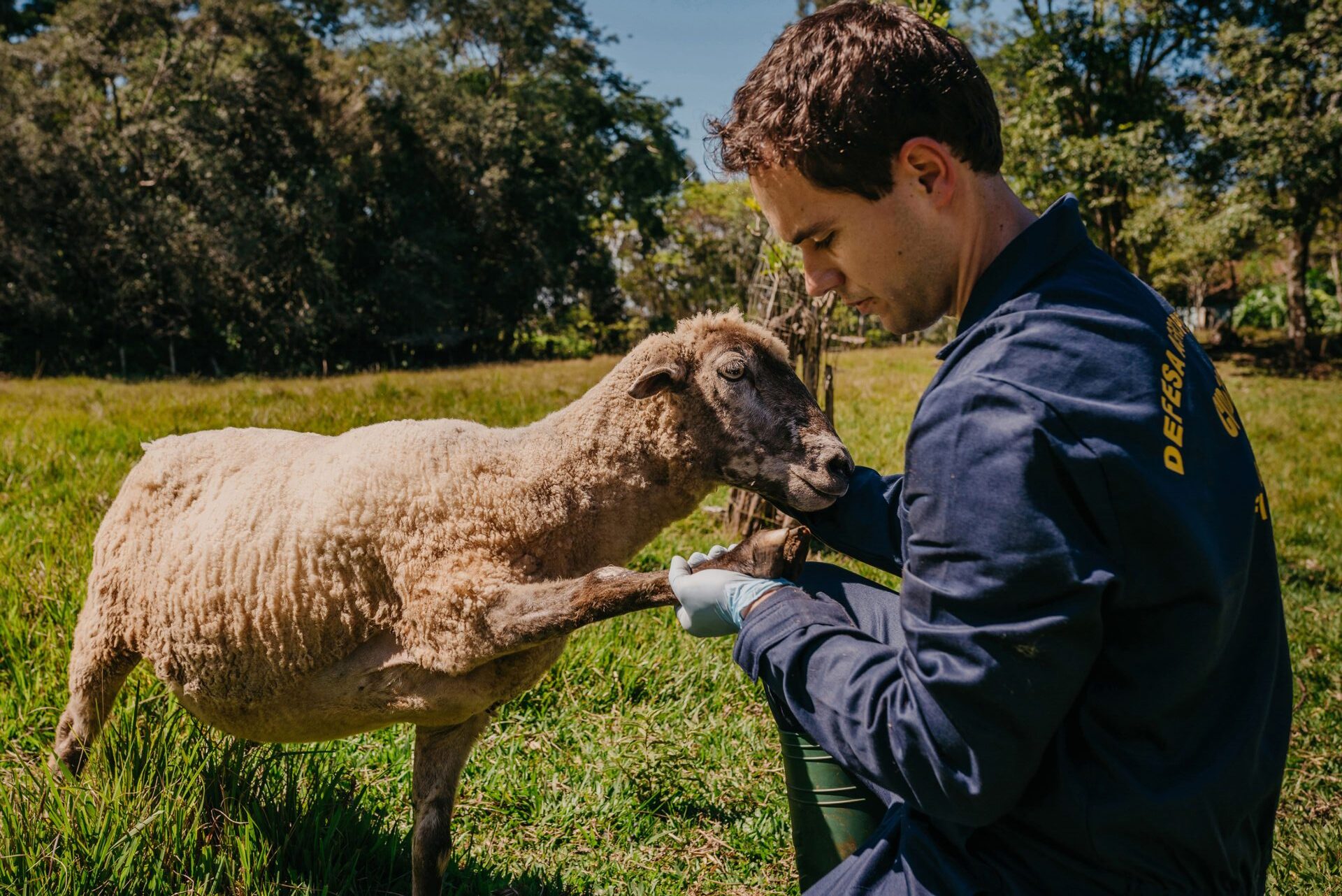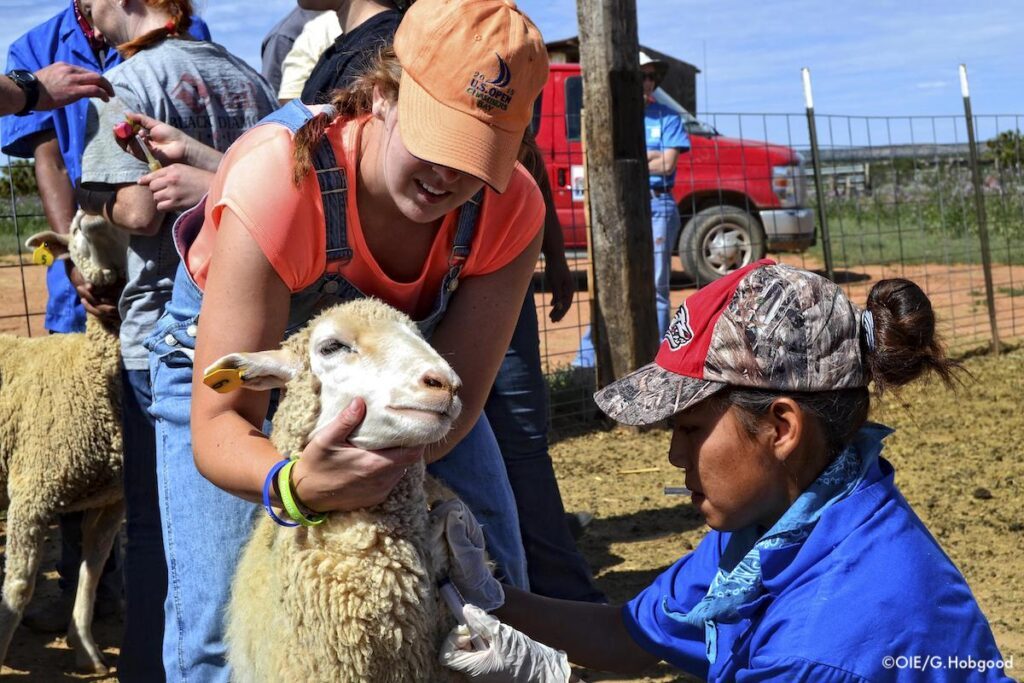


Resilience has been a guiding principle of the World Organisation for Animal Health (OIE) throughout its nearly 100 years of existence. From emerging infections to the challenges posed by an increasingly globalised society, the Organisation has built a portfolio to support Veterinary Services in dealing with an ever-evolving world. Recent devastating animal disease outbreaks, such as avian influenza, have highlighted the value of the veterinary workforce and its ability to prevent and respond to global health threats. These need to be reminded on the occasion of World Veterinary Day 2022.
The OIE works toward making Veterinary Services efficient and resilient contributors to improved animal health across the world and better monitor diseases in wildlife. As well as creating a supportive environment for their practices, the Organisation implements continuous learning and capacity-building initiatives to foster the sustainable improvement of the veterinary workforce.



Dr Monique Éloit, OIE Director General
One of our flagship programmes, the PVS Pathway embodies this ambition. An assessment-based system, it makes it possible to effectively identify the strengths and needs of Veterinary Services, raise awareness about a country’s compliance with our International Standards and provide an array of training and support programmes. In line with the “One Health” approach, the OIE has also been implementing joint seminars with the World Health Organization (WHO) to facilitate the sharing of evidence-based practices between animal and human health services.
OIE’s capacity-building initiatives aim to achieve long-lasting results, often being adapted to the needs of each country. The EBO-SURSY project, for instance, is intended to support countries in preventing outbreaks and improving regional response capacities to zoonotic diseases taking their toll on countries across West and Central Africa.
To enhance the performance of animal health professionals when challenged by adverse events, there is nothing as powerful as collaborations across sectors. Sustainable Public−Private Partnerships (PPPs) are critical to enabling resources and opening opportunities for change. The organisation has published a handbook of guidelines as well as an online course to encourage its Members to establish and nurture cross-sectoral networks.
Against a backdrop marked by growing uncertainty, protecting animals from life-threatening events also require multilateral relationships and interdisciplinary partnerships. The OIE and its long-standing partners, the World Health Organisation (WHO), and the Food and Agriculture Organisation of the United Nations (FAO) have recently enhanced collaboration and included the UN Environment Programme (UNEP) in their alliance. The newly born Quadripartite stems from the need to mobilise different sectors and expertise to build a more comprehensive and coordinated One Health governance. Similarly, the project ‘Building resilience against agro-crime and agro-terrorism’ was established in 2018 to build bridges between animal health and the law enforcement sector to help address animal health emergencies.
The pursuit of veterinary resilience fits into the OIE’s far-sighted vision for global health. The linkage between resilience and sustainability is stronger in today’s interconnected world than ever before. Investing in relationships and structures working towards strengthening resilience will contribute to the advancement of the Sustainable Development Goals. The transfer of skills and knowledge through training reinforces the Organisation’s belief that fair access to education plays a pivotal role in securing a sustainable future for people, animals, and the planet they inhabit.
By making the professional community resilient, the OIE addresses underlying animal health challenges and delivers strong societal returns: better disease prevention and response capacities in Veterinary Services mean that countries are better prepared for the challenging times ahead.



“The OIE thanks all its resource partners for their support for its programmes”
Australia, Canada, China (People’s Rep. of), Colombia, France, Germany, Ireland, Italy, Japan, Korea (Rep. of), Mexico, the Netherlands, New Zealand, Norway, Spain, Sweden, Switzerland, United Kingdom, United States of America, European Union, Food and Agriculture Organisation of the United Nations, World Bank, World Health Organization, World Trade Organization, Bill & Melinda Gates Foundation, the Donkey Sanctuary, Four Paws, Global Alliance for Livestock Veterinary Medicines (Galvmed), International Coalition for Working Equids (ICWE), the International Horse Sports Confederation (IHSC), Regional International Organization for Plant Protection and Animal Health (OIRSA), Royal Society for the Prevention of Cruelty to Animals (RSPCA) and St Jude’s Hospital.
Source: OIE

